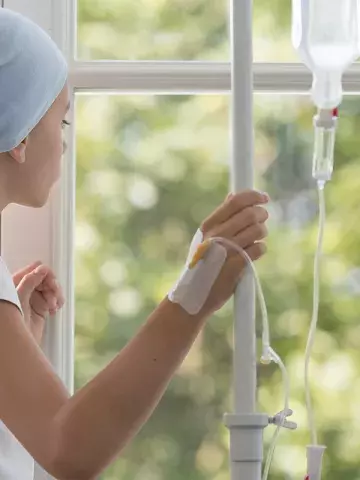Survivors of childhood cancer may have earlier onset of age-related diseases
By Rebecca Jenkins
Survivors of childhood cancer develop age-related diseases, such as breast cancer and heart failure, years earlier than the general population, regardless of prior radiation exposure, a study finds.
A growing body of evidence suggested that cancer treatment was associated with accelerated ageing, potentially linked to biological or genetic changes induced from chemotherapy and radiotherapy exposure, US researchers wrote in JAMA Oncology.
Using data from the US Childhood Cancer Survivor Study and national databases, researchers conducted a simulation modelling study to project the long-term outcomes for five-year childhood cancer survivors diagnosed between 1970 and 1999 compared with the general population.
Eight treatment-related chronic conditions were included in the study: subsequent neoplasms (breast, colorectal, glial tumours and sarcomas) and cardiovascular conditions (heart failure, myocardial infarction, stroke and valvular disease).
The study showed that 20% of the general population developed at least one of these eight health conditions by the time they were 65 years old; however, this threshold was reached 17.7 years earlier (age, 47.3 years) for five-year survivors of childhood cancer.
By age 65 years, 55% of survivors were projected to develop at least one of the eight conditions, representing a 2.7-fold higher relative risk and a 34.2% absolute excess risk compared with the general population.
‘Our findings suggest survivors may experience considerable accelerated aging throughout their lifespan, with a two-decade earlier onset and a greater lifetime risk of common and life-threatening [chronic health conditions],’ the researchers wrote.
Although projected risks were higher among survivors previously treated with radiation, survivors not exposed to radiation also faced substantial accelerating ageing risks, they noted.
‘Early cancer and cardiovascular prevention strategies should be prioritised for all survivors, beginning decades earlier than for the general population,’ the researchers recommended.
Dr Sarah Grimshaw, Physiotherapist and Researcher in the Cancer Therapies Group at Murdoch Children’s Research Institute (MCRI), Melbourne, said childhood cancer survivors needed education about the implications of their treatment on their long-term health.
‘This involves having a clear understanding of the treatment they received, the potential risks and the importance of ongoing care and surveillance in the community,’ Dr Grimshaw told Medicine Today.
Primary healthcare clinicians had an important role to play through early identification and management of childhood cancer survivors, which included promoting preventive health strategies like physical activity, which might protect against late-stage effects such as metabolic syndrome and cardiovascular toxicity.
Dr Grimshaw, who recently received funding to investigate whether physical activity and exercise can improve frailty outcomes in children treated for leukaemia, said there was also growing evidence to support the role of much earlier preventative strategies.
‘We are exploring how to recognise early signs of physical vulnerability or frailty in children during their treatment and intervening with targeted exercise and nutritional interventions,’ she said.
‘Understanding how these negative health impacts may be minimised by early intervention strategies, such as rehabilitation and lifestyle interventions, is a key focus for future research.’


